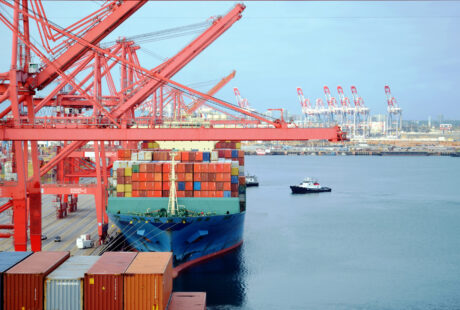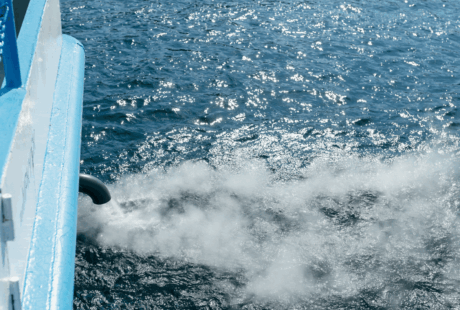After yet another container loss, the shores of Galicia, Asturias and Cantabria (Spain), along the Atlantic coast, are under siege from a relentless tide of microplastics. Those small particles washing ashore are plastic pellets, which are the raw material used to manufacture all plastic items.
As a coalition of NGOs, we are raising our collective voice to call for action to stop this environmental catastrophe stemming from the systemic poor handling of plastic pellets throughout the value chain. And this can be achieved with the adoption of ambitious EU legislation.
The Galician NGO, Noia Limpa, was the first to sound the alarm, unveiling the shocking dimension of this plastic pellet pollution. The scale of this issue, resulting from a ship losing several containers at sea, is staggering. Out of over a thousand lost bags, over one hundred filled with pellets have already been found on the Spanish shore, each potentially containing up to a million pieces of plastic pellets. Some bags were torn and leaking small plastic particles – composed of polyethylene and UV stabilizers – into the environment. The greater concern is that the vast majority of the lost bags have not yet been found – they will either drift away and contaminate other regions or remain in the ocean and release their hazardous load.
Once in the ocean, pellets float widely, causing widespread harm to flora and fauna. Their small size makes them nearly impossible to clean up. Moreover, the pellets contain harmful additives, such as UV light stabilizers, and act as toxin magnets and transport mediums for toxic substances, adding to the risks posed to human health and the environment.
This crisis is not isolated to Galicia; it is a European and even a global problem. NGOs have been increasingly reporting plastic pollution cases for years, and as plastic production is expected to rise, this will only escalate dramatically.
This crisis is also not solely a maritime transport issue. It is an illustration of the careless handling of plastic pellets by an entire industrial sector. Plastic pellets are spilled at each stage of the value chain, from production and conversion sites to recycling installations and during transportation. In the European Union alone, an estimated 160,000 tons of plastic pellets are lost annually.
The current events only stress the need for bold EU measures to prevent this pollution and finally hold polluters accountable. It is appalling that, as of now, taxpayers are the ones bearing the cost of the countless incidents of pollution across the EU.
The good news is that European legislation is currently under review, following a proposal for a regulation from the European Commission tabled in October 2023. However, as it stands, the text will be too weak to make a significant difference. Shockingly, while being responsible for the Galician catastrophe, maritime transport is simply exempted from any requirements. Another major flaw is that smaller enterprises from the plastic value chain benefit from symbolic measures which will not be sufficient to prevent pellet spills.
The EU must urgently address this regulatory gap, and the culture of impunity must be crushed. An ambitious and comprehensive regulation is needed. Thus, prioritizing prevention should be non-negotiable, and accountability for all pellet handlers must be a universal demand – irrespective of a company’s size or a mode of transport, maritime included.
Real change can only be achieved with Members of the European Parliament stepping up and showing political courage under the current mandate. With the EU elections happening only in a few months, current Members of the European Parliament will be judged on their ability to respond in practical terms to the problems faced by European citizens. The time for half-measures and empty promises is over; the citizens demand decisive action now.
We call on the European Parliament to step up in the fight against microplastic pollution by adopting a comprehensive and ambitious regulation.
SIGNATORIES
ECOS
Environmental Investigation Agency
European Environmental Bureau
Fauna & Flora International
Fidra
Gallifrey Foundation
Rame Peninsula Beach CareKimo
Rethink Plastic
Seas at Risk
SOS Mal de Seine
Surfrider Foundation Europe
Ocean Care

Posted on: 16 January 2024



